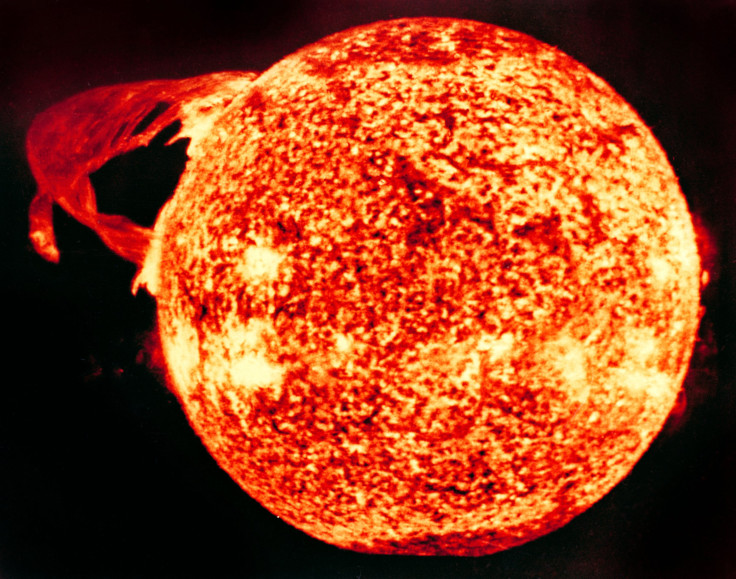Astronomer Spots Plasma Leaking From Sun’s Surface

KEY POINTS
- An astronomer captured images of solar prominences
- Some of the prominences moved at speeds of around 100,000 miles per hour
- Solar prominences could lead to the formation of coronal mass ejections
An amateur astronomer was able to capture images of solar prominences escaping from the Sun’s surface. These prominences, which mainly consist of plasma, are known to trigger coronal mass ejections.
The plasma in prominences is formed by the escaping ionized gas from the Sun’s corona. They usually appear as bright looping features that extend outward from the Sun’s surface.
Recently, as astronomer Sylvain Chapeland was observing the Sun through his backyard observatory in Gex, France, he spotted a massive solar prominence on the giant star.
Through his equipment, Chapeland was able to observe the movement of the solar prominences on the surface of the Sun. Based on his observations, some of the prominences moved at speeds of around 100,000 miles per hour.
In the short video that he shared, the solar prominence can be seen moving like a fountain on the surface of the Sun.
“I tracked it for 2 hours using my 100mm refractor with an H-alpha filter (tuned to the red glow of solar hydrogen), Chapeland stated, according to SpaceWeather.com. “It was wonderful to discover in the resulting video so many fine patches of gas falling downward along the magnetic field lines. I measured some of them speeding at around 100,000 mph!”
As seen in Chapeland’s video, solar prominences often form loops as they escape from the Sun. In some cases, the prominences break apart and move outward and away from the Sun’s atmosphere. These emissions are known as coronal mass ejections (CME).
Aside from plasma or ionized gas, CMEs also carry highly-charged particles from the Sun’s magnetic field. CMEs can travel long distances across space. Depending on the direction of the CMEs, these solar emissions can sometimes hit Earth.
The interaction between the highly-charged particles of CMEs and Earth’s magnetic field could lead to geomagnetic storms. Sometimes, these solar storms would trigger the appearance of polar lights over Earth’s magnetic poles, which are known as auroras.
However, if the CME is powerful enough, the resulting geomagnetic storm could cause disruptions in satellite transmissions and GPS signals. It could also trigger widespread power outages.
© Copyright IBTimes 2025. All rights reserved.





















